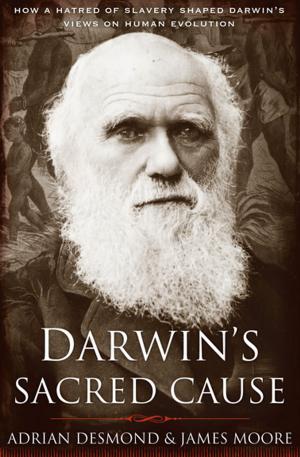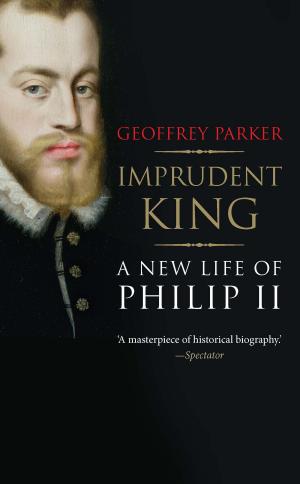Cuba: Land of Opportunity - the Life and Times of George Clarke Musgrave
Fiction & Literature, Literary Theory & Criticism, Caribbean & West Indian, Biography & Memoir| Author: | Adrian Musgrave | ISBN: | 9781310645327 |
| Publisher: | Adrian Musgrave | Publication: | June 18, 2014 |
| Imprint: | Smashwords Edition | Language: | English |
| Author: | Adrian Musgrave |
| ISBN: | 9781310645327 |
| Publisher: | Adrian Musgrave |
| Publication: | June 18, 2014 |
| Imprint: | Smashwords Edition |
| Language: | English |
The Great War of 1914 - 1918 has taught the world more in geography and history than a century of ordinary education would have imparted. It has destroyed many inherited prejudices and shattered the complacency which was shackling the imagination that built up the British Empire. As peace introduces a new era of international comity which will test the bonds forged between the Allied countries, this seems an opportune time to present some simple facts regarding Cuba, a young member of the family of nations, that has stood solidly with the Allies from the outset, but of whom the British people know so little. We have special interests in the West Indies, and there are sentimental and practical reasons why we should have a cordial understanding with our largest neighbour there, nearly the size of England.
British policy is being determined by a public that cares nothing about other countries unless pestilence, war, earthquake or lynching gives them a news value, while the American Press, on the other hand, teems with articles destined to create a wide interest in Cuban affairs and commercial opportunities. Driven by the enthusiasm and support of their Government, and particularly Theodore "Teddy" Roosevelt, Americans are gaining an increasing share in Cuba's rapidly developing infrastructure and trade. Inspired by all these promising signs, it was the vision of men such as: John Findlay Wallace, John Frank Stevens and Lieutenant Colonel George Washington Goethals, that brought life to the President's most ambitious project, to connect the Pacific to the Atlantic through a canal across the Isthmus of Panama. Within just two years of the opening of the Panama Canal in 1915, thousands of Americans and Canadians were flocking to the Caribbean Islands, and an increase of more than 400% was recorded for the value of Cuba's seaports.
It is no exaggeration to speak of Cuba as the key to the Western Hemisphere. Her strategic position between North and South America, commanding the Gulf of Mexico and Caribbean Sea, as well as her rare qualities as a country, entitles her to this definition. Her influence in the cause of Pan-Americanism, her record in the history of the New World, her large commerce, her extraordinary wealth of resources and products, in proportion to area and population, her unique geographical position, support this description. Just as the influence of men does not depend upon their stature, but upon the quality of their minds, so Cuba's place in the family of nations depends not on her area but on what she really is, has, and does - and upon the business acumen, the intellect and the vision of those who choose to be part of this Land of Opportunity.
The Great War of 1914 - 1918 has taught the world more in geography and history than a century of ordinary education would have imparted. It has destroyed many inherited prejudices and shattered the complacency which was shackling the imagination that built up the British Empire. As peace introduces a new era of international comity which will test the bonds forged between the Allied countries, this seems an opportune time to present some simple facts regarding Cuba, a young member of the family of nations, that has stood solidly with the Allies from the outset, but of whom the British people know so little. We have special interests in the West Indies, and there are sentimental and practical reasons why we should have a cordial understanding with our largest neighbour there, nearly the size of England.
British policy is being determined by a public that cares nothing about other countries unless pestilence, war, earthquake or lynching gives them a news value, while the American Press, on the other hand, teems with articles destined to create a wide interest in Cuban affairs and commercial opportunities. Driven by the enthusiasm and support of their Government, and particularly Theodore "Teddy" Roosevelt, Americans are gaining an increasing share in Cuba's rapidly developing infrastructure and trade. Inspired by all these promising signs, it was the vision of men such as: John Findlay Wallace, John Frank Stevens and Lieutenant Colonel George Washington Goethals, that brought life to the President's most ambitious project, to connect the Pacific to the Atlantic through a canal across the Isthmus of Panama. Within just two years of the opening of the Panama Canal in 1915, thousands of Americans and Canadians were flocking to the Caribbean Islands, and an increase of more than 400% was recorded for the value of Cuba's seaports.
It is no exaggeration to speak of Cuba as the key to the Western Hemisphere. Her strategic position between North and South America, commanding the Gulf of Mexico and Caribbean Sea, as well as her rare qualities as a country, entitles her to this definition. Her influence in the cause of Pan-Americanism, her record in the history of the New World, her large commerce, her extraordinary wealth of resources and products, in proportion to area and population, her unique geographical position, support this description. Just as the influence of men does not depend upon their stature, but upon the quality of their minds, so Cuba's place in the family of nations depends not on her area but on what she really is, has, and does - and upon the business acumen, the intellect and the vision of those who choose to be part of this Land of Opportunity.















